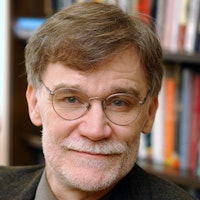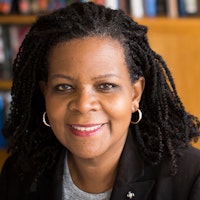
Much of history is dark because human nature is dark.
Show Notes
Two Pulitzer Prize-winning historians explain the difference between myth and reality in American history. David Blight, a professor at Yale, says we use myths to help process history, which can be dismal. “Much of history is dark because human nature is dark. We sometimes have to process the past in sentimentalism — in stories that allow us to wake up in the morning.” Annette Gordon-Reed, an American legal history professor at Harvard, says the point of history is to figure out how you got to where you are in present-day. Blight and Gordon-Reed sit down with John Dickerson, correspondent for “60 Minutes,” to discuss correcting America’s historical memory. They touch on historical events like the white supremacist rally in Charlottesville, and whether reparations for injustice are realistic. The views and opinions of the podcast guests are their own and do not necessarily reflect those of the Aspen Institute.
Learn More
Additional Information
Explore
Related episodes


Bryan Stevenson, founder and director of the Equal Justice Initiative, speaks with Harvard President Drew Gilpin Faust about his organization’s efforts to build a museum examining the legacy of slavery, racial terrorism, segregation, and police violence.


Author Eric Motley speaks with Joshua Johnson about his book "Madison Park: A Place of Hope."


Liberal democracies are threatened by nationalist populist leaders and identity politics says Stanford professor Francis Fukuyama.









